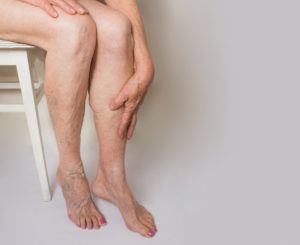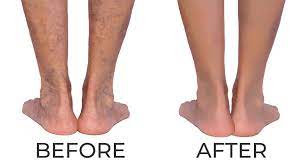Venous disorders are common and often troubling. This blog post will discuss the most common venous disorders and how to treat them.
Venous diseases are disorders that affect the veins of the body. Veins are responsible for carrying blood back to the heart, and when they are not working properly, various problems can occur. Longevity Live Partner Content
What is a venous disorder and how does it affect your longevity?
Venous disorders can cause a variety of symptoms, from mild discomfort to severe pain. Some of the most common venous disorders include varicose veins, spider veins, and chronic venous insufficiency. Varicose veins are large, twisted veins that typically appear on the legs. Spider veins are smaller, red, or blue veins that typically appear on the face or chest. Chronic venous insufficiency is a condition that occurs when the valves in the veins weaken, preventing blood from flowing properly back to the heart.
Treatment for venous disorders varies depending on the severity of the condition. In mild cases, home remedies such as wearing compression stockings and elevating the legs may be enough to reduce symptoms. For more severe cases, treatments such as vein ligation and ablation may be necessary.

The varicose veins on a legs of old woman on gray: Picture credit: Forth Worth Vein Clinic
If you’re concerned about a venous disorder, talk to your doctor. With early diagnosis and treatment, most venous disorders can be effectively managed. From Fort Worth vein clinic to New York, vein specialists offer various treatment options for those suffering from vein disease, and many specialize in providing treatment options tailored specifically to each person’s needs. Vein clinics offer a variety of treatments, including sclerotherapy, Endovenous laser therapy, and surgery.
Blood clots
Blood clots are a potentially dangerous medical condition that can occur when the blood thickens and forms clumps. They can occur in any part of the body but are most commonly found in the internal organs’ legs, arms, or veins.
Blood clots can also form in the brain, kidneys, or lungs.
If a blood clot breaks free and travels through the bloodstream, it can block an artery and cause a heart attack or stroke. Blood clots are often treated with anticoagulant medication, which helps thin the blood and prevents new clots from forming. In severe cases, surgery may be necessary to remove the blood clot.
Chronic venous insufficiency
Chronic venous insufficiency is a condition that can occur when the veins are unable to pump blood back to the heart adequately. This can happen for a variety of reasons, including valvular damage, obesity, and pregnancy. While chronic venous insufficiency is not typically a life-threatening condition, it can cause a lot of discomfort and may lead to other complications if left untreated.
Symptoms of chronic venous insufficiency include pain, swelling, and skin changes. Treatment options vary depending on the severity of the condition, but may consist of lifestyle changes, compression therapy, and surgery.
If you think you may be experiencing symptoms of chronic venous insufficiency, be sure to speak with your doctor.

Photo credit: Fort Worth Vein Clinic
Deep vein thrombosis
Deep vein thrombosis is a blood clot that forms in a vein deep inside your body. This can occur in any deep vein, but it most commonly develops in the leg. Deep vein thrombosis is a serious condition because the clot can break loose and travel to your lungs, causing a pulmonary embolism, which can be life-threatening.
Symptoms of deep vein thrombosis include swelling, pain, and redness in the affected leg. If you have these symptoms, you should see a doctor immediately.
Treatment involves taking blood thinners to prevent the clot from getting larger and reduce the risk of pulmonary embolism. Surgery may be necessary to remove the clot.
You can help prevent deep vein thrombosis by staying active and moving your legs often during long periods of sitting or standing. Wearing loose clothing and elevating your legs when possible will also help. If you are at risk for deep vein thrombosis, your doctor may prescribe blood thinners to prevent it from developing.
Varicose veins
Varicose veins are swollen, twisted veins that can be painful and cause several other symptoms. In severe cases, they can lead to ulcers or blood clots. While there is no cure for varicose veins, there are treatments that can help to improve symptoms and prevent further progression of the condition. These include lifestyle changes, such as maintaining a healthy weight and avoiding long periods of standing or sitting.
In addition, compression stockings and other supportive garments can help improve circulation and reduce swelling. Some procedures can be done for more severe cases to remove the affected veins. If you are suffering from varicose veins, talk to your doctor about the best treatment options for you.
Who is the author?

Larizza de Vera is a freelance writer who lives in the Philippines. She wrote byline articles for the Asian Journal newspaper and has ghostwritten articles for numerous websites. Larizza has diverse writing experience, from writing technical and lifestyle articles.





![women [longevity live]](https://longevitylive.com/wp-content/uploads/2020/01/photo-of-women-walking-down-the-street-1116984-100x100.jpg)









